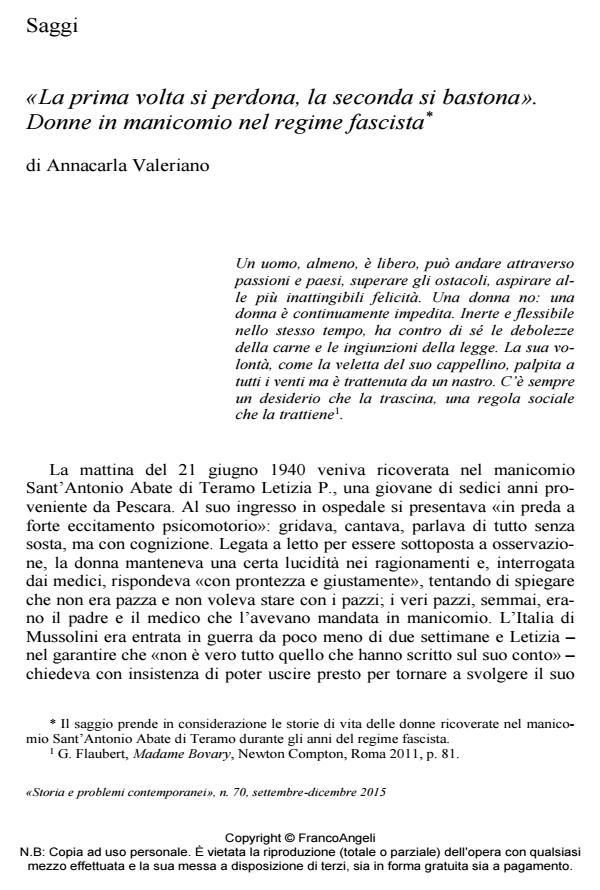«La prima volta si perdona, la seconda si bastona». Donne in manicomio nel regime fascista
Titolo Rivista STORIA E PROBLEMI CONTEMPORANEI
Autori/Curatori Annacarla Valeriano
Anno di pubblicazione 2016 Fascicolo 2015/70 Lingua Italiano
Numero pagine 22 P. 11-32 Dimensione file 717 KB
DOI 10.3280/SPC2015-070002
Il DOI è il codice a barre della proprietà intellettuale: per saperne di più
clicca qui
Qui sotto puoi vedere in anteprima la prima pagina di questo articolo.
Se questo articolo ti interessa, lo puoi acquistare (e scaricare in formato pdf) seguendo le facili indicazioni per acquistare il download credit. Acquista Download Credits per scaricare questo Articolo in formato PDF

FrancoAngeli è membro della Publishers International Linking Association, Inc (PILA)associazione indipendente e non profit per facilitare (attraverso i servizi tecnologici implementati da CrossRef.org) l’accesso degli studiosi ai contenuti digitali nelle pubblicazioni professionali e scientifiche
The paper considers the life stories of women admitted in the asylum of Saint Anthony of Teramo during the years of the fascist regime. The aim is to illustrate how fascism draws on established cultural patterns - based on a positivist imprint - to contain female perversion. The psychiatric institution confirms its repressive function and assisted the State in preserving the morality and health of the human race. Within the walls of the psychiatric institution, we find the "pecore matte" who interacted with the regime placing themselves outside the conventional models. Subject to psychiatric treatments, women acquired new cultural identities, while the hysterical ones returned to the institution’s medical records. Moreover, the Rocco Penal Code humiliated the victims of rape, forcing them to undergo psychiatric evaluation to determine their morality and ability of endurance towards their assailants;
Annacarla Valeriano, «La prima volta si perdona, la seconda si bastona». Donne in manicomio nel regime fascista in "STORIA E PROBLEMI CONTEMPORANEI" 70/2015, pp 11-32, DOI: 10.3280/SPC2015-070002